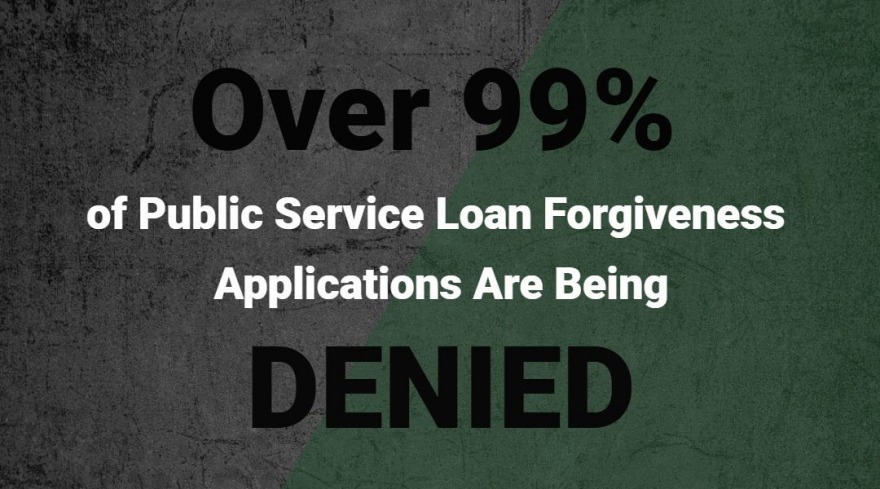
Call for White Papers: Financing Education
-
$1,500 grant for the best student proposal
-
Student submissions are CLOSED
-
Faculty two-page proposal submissions will temporarily remain open until January 6th, 2020 at 11:59 PM EST
-
Student Finalists selection on December 15th, 2019
-
Student White paper submissions due March 15th, 2020
The Competition
Student loan debt—$1.5 trillion and rising—is a big story, and a big public policy issue now, and in the coming 2020 election. Loan debt is affecting the choices and lives of the next generation. The challenge of educating students for careers in public service is one of the subplots of that story: if students can’t pay for their education, they won’t do it.
NASPAA is looking for proposals from Graduate/PHD students with innovative ideas and solutions to write a white paper on the subject of financing graduate education for public service. If your proposal is selected, you will be offered a $1500 grant to write a white paper based on your proposal. Your white paper will also be highlighted at the NASPAA conference in Chicago and will provide a basis for developing a national approach.
If you are interested in writing a white paper, please send an email to PublicService@naspaa.org with a PDF of your 1-2 page proposal attached. The subject line should say “Education Financing Proposal” and must be received by 11:59 PM EST on Sunday, December 8th, 2019.
*UPDATE: Student submissions are now CLOSED. However, faculty two-page proposal submissions will temporarily remain OPEN until January 6th, 2020 at 11:59 PM EST
*Judges reserve the right to extend the proposal deadline
*Any proposals received after the due date will be automatically disqualified from receiving any grant money.*
Faculty Participants
- Might there be evidence that (a) much of national student debt is undergraduate debt and (b) substantial undergraduate debt might pose a barrier to public service graduate education and, ultimately, public service careers?
- Where do we find the data to support research in this area, and what does it look like?
- Are there any states or localities offering tax incentives, debt repayments (or tuition reimbursements) to govt employees in public service? If so, who, and how?
- What might an adaptation of Purdue University's "Back-a-Boiler" income share model look like for the MPA/MPP? What does the data suggest about what a plan tailored to MPA/MPP graduates would need to look like?
- How might the relatively high interest rate on Grad Plus loans (>7%) impact individual choice? Additionally, how does the lack of in-school subsidy for graduate loans, and thus in-school compounding hurt graduate students?
- Regarding Public Service Loan Forgiveness (PSLF), What is the nature of the regulatory environment at the Dept of Education, and with respect to the contractors that makes accountability and transparency so difficult? What can be done to improve it?
- Regarding the administrative streamlining of PSLF, what could be done legislatively or through regulations to make eligibility and certification easier and more predictable/certain?
- What are the barriers to using the tax system to automatically certify (and collect) income based repayment and public service loan forgiveness eligibility?
- What are the behavioral economics aspects of income driven/based repayments, and how can we model the effects of changes in the key variables (number of years before cancellation, % of income, types of income shielding such as 150% of poverty line, treatment of marriage, and capped versus uncapped debt forgiveness)?
- What are the implications of a broad “free college for all” strategy, as opposed to a more targeted effort of federal support for high-priority needs, like support for lower-income individuals and for those pursuing education for high-priority national needs, like public service?
More Information
- Your white paper should be 3,000-5,000 words.
- Each white paper should begin with a problem statement, propose an idea or sketch a design, provide relevant evidence and argument, summarize existing examples or prototypes, and conclude with recommendations and questions for further discussion.
- The purpose of your white paper would be to affect a positive change on the state of financing education for graduate students in public services degree. Proposal should demonstrate ideas that serve to meet those ends. Listed below are some of the major issues and contributing agents that you may want to consider when writing your proposal.
- Issues of student loans, debt and repayment
- Past, current and pending legislation
- Higher Education Act and its reenactments
- Federal loan service providers such as FAFSA and Grad PLUS
- Income based repayment
We’re glad you asked! If your proposal is selected as the best in your category, not only will you receive a $1,500 grant for writing your white paper, but your white paper will also be displayed on our website. Furthermore, 2 runner ups will be selected to have their proposals listed on our website as well. This is an excellent way to build up your portfolio and to put your name out there.
In addition, NASPAA will be conducting panels and seminars with researchers and policy makers on this topic in the months ahead, and you will be invited to present your white paper ideas there!
- Proposals must be submitted no later than December 8th, 2019, at which point our panel of anonymous judges will review each entry and then decide on the winners who will be asked to white paper.
- Each entrant will be notified of the judges decision by December 15th, 2019.
- White papers from those selected will be due on March 15th, 2020.
If you are selected to write a white paper, it must be submitted by March 15th, 2020 in order to receive your grant money. You will only receive grant money AFTER your white paper has been completed and submitted.
The Judges have the final say on all decisions.
Please email us at PublicService@naspaa.org if you have any questions.
For more information about NASPAA's take on public service student loan policy and other areas of public service education advocacy, check out our Advocacy/Policy Center web page.

